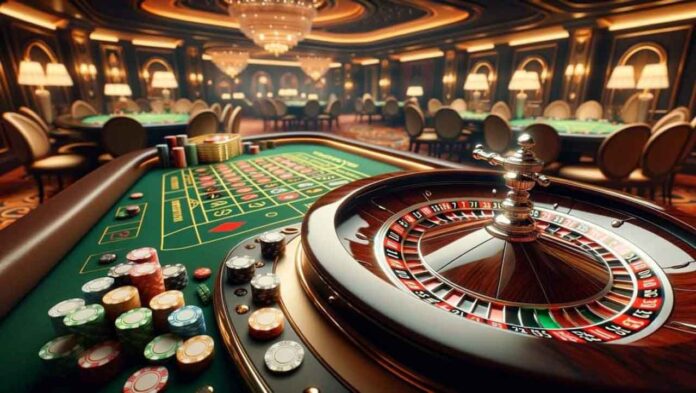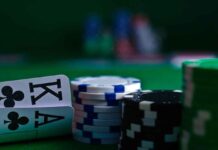Gambling, by its very nature, involves risk and decision-making under conditions of uncertainty. Human psychology plays a crucial role in these decisions, often leading gamblers to make irrational choices based on cognitive biases.
Understanding these biases can provide valuable insights into why gamblers think and behave the way they do, potentially helping to mitigate some of the adverse effects.
Common Cognitive Biases in Gambling
Whether you’re a seasoned gambler or a player who has yet to dip your toes, you are bound to experience some, if not most of the psychological biases on our list. Let’s examine the most prominent fallacies you can encounter, one by one. For players looking to explore their gambling habits further, consider delving into resources available at a mobile casino in Canada, where you can find tools and support tailored to responsible gambling practices.
Gambler’s Fallacy
This is the belief that if something happens more frequently than normal during a given period, it will happen less frequently in the future, and vice versa. For instance, if a roulette ball has landed on black several times in a row, a gambler might believe that it’s now more likely to land on red, which is not statistically true.
To combat this fallacy, it’s crucial to understand and remind oneself that each event in games of chance is independent of the previous ones. Tools like keeping a record of outcomes can help visualize this independence, reinforcing that probabilities remain constant.
Confirmation Bias
Gamblers often favor information that confirms their existing beliefs. If a player believes that a specific strategy is successful, they’ll pay more attention to instances where it works and disregard those where it does not, leading to potentially skewed decision-making.
One way to mitigate confirmation bias is by actively seeking out information that contradicts your beliefs or decisions. This could involve analyzing losses just as thoroughly as wins or considering advice and strategies from a range of sources.
Anchoring Bias
This occurs when individuals rely too heavily on the first piece of information they receive. In gambling, this might be the initial odds or a potential payout, which can skew their perception of the bet’s value.
To avoid the anchoring bias, gamblers should gather multiple pieces of information before making betting decisions. This could involve comparing different games’ odds, checking historical outcomes, or even delaying decisions until several differing inputs are considered.
Optimism Bias
Many gamblers believe they are less likely to suffer losses and more likely to win than others. This can lead to taking greater risks based on an inflated belief in their chances of success.
Recognizing that optimism bias may be clouding realistic judgment of winning odds can be countered by regularly reviewing actual win-loss records to maintain objective perspective. Additionally, consulting neutral third parties for their input can help balance overly optimistic tendencies.
Loss Aversion
Gamblers often prefer avoiding losses to acquiring equivalent gains. For example, the pain of losing $100 is psychologically more impactful than the pleasure of winning $100. This can lead gamblers to chase losses irrationally, trying to recoup their funds at high risk.
To tackle loss aversion, it’s helpful to set predetermined, acceptable loss limits before beginning to gamble and sticking to them rigidly. Acknowledging that the discomfort of a loss can cloud judgment about future bets is also crucial.
The Illusion of Control
This bias leads gamblers to overestimate their ability to control the outcome of an uncontrolled event, such as throwing dice or picking lottery numbers. They might believe that their personal system or ritual impacts the game’s outcome.
Reducing the illusion of control involves accepting the randomness of gambling outcomes. Gamblers should focus on the fun and entertainment aspect of gambling, rather than the illusion of influencing random outcomes through rituals or strategies.
The Sunk Cost Fallacy
Players might continue gambling to justify the amounts already spent or lost, believing that more time or money invested can turn their luck around. This is particularly common in long sessions of gambling where past losses pile up.
The best way to combat the sunk cost fallacy is by setting clear time and money budgets before gambling and adhering strictly to them regardless of outcomes. Viewing money and time spent as past costs that cannot be recovered can help prevent good money from being thrown after bad.
Strategies to Overcome Cognitive Biases
Simply being aware of these biases can help gamblers check their decisions. Educational programs that inform players about the statistical realities of games and the psychological tricks their minds play can aid in more rational decision-making.
Setting strict limits on how much time and money to spend can help gamblers avoid the pitfalls of biases like loss aversion and the sunk cost fallacy. Tools like self-limiting features at casinos are effective at enforcing these limits.
Techniques that increase mindfulness can help gamblers remain grounded in reality and resist the sway of biases. Cognitive-behavioral strategies can also be employed to change thinking patterns about gambling and decision-making processes.
Gambling in a Mindful, Aware Way
Cognitive biases significantly affect gambling behaviors, leading to decisions that might not be in one’s best interest. By understanding and acknowledging these biases, gamblers can take steps to mitigate their effects, leading to safer and more enjoyable gambling experiences. Educators, casinos, and gamblers themselves play a crucial role in fostering a more aware and controlled gambling environment.







